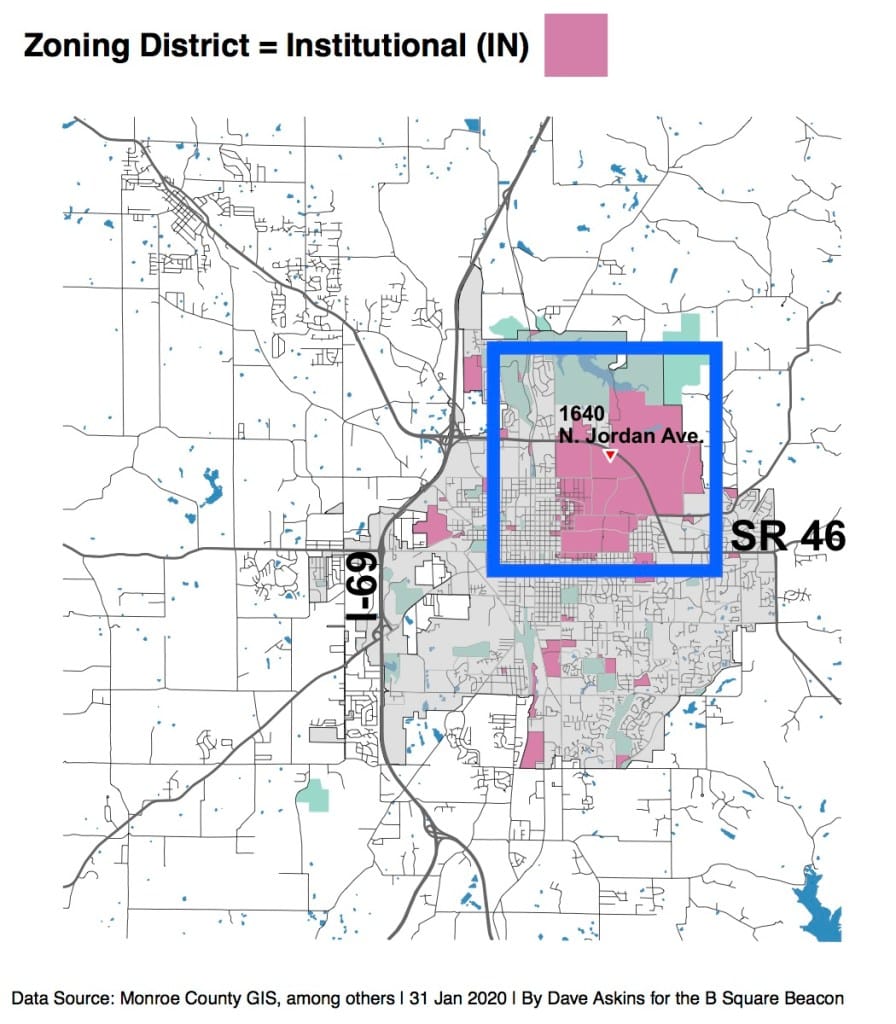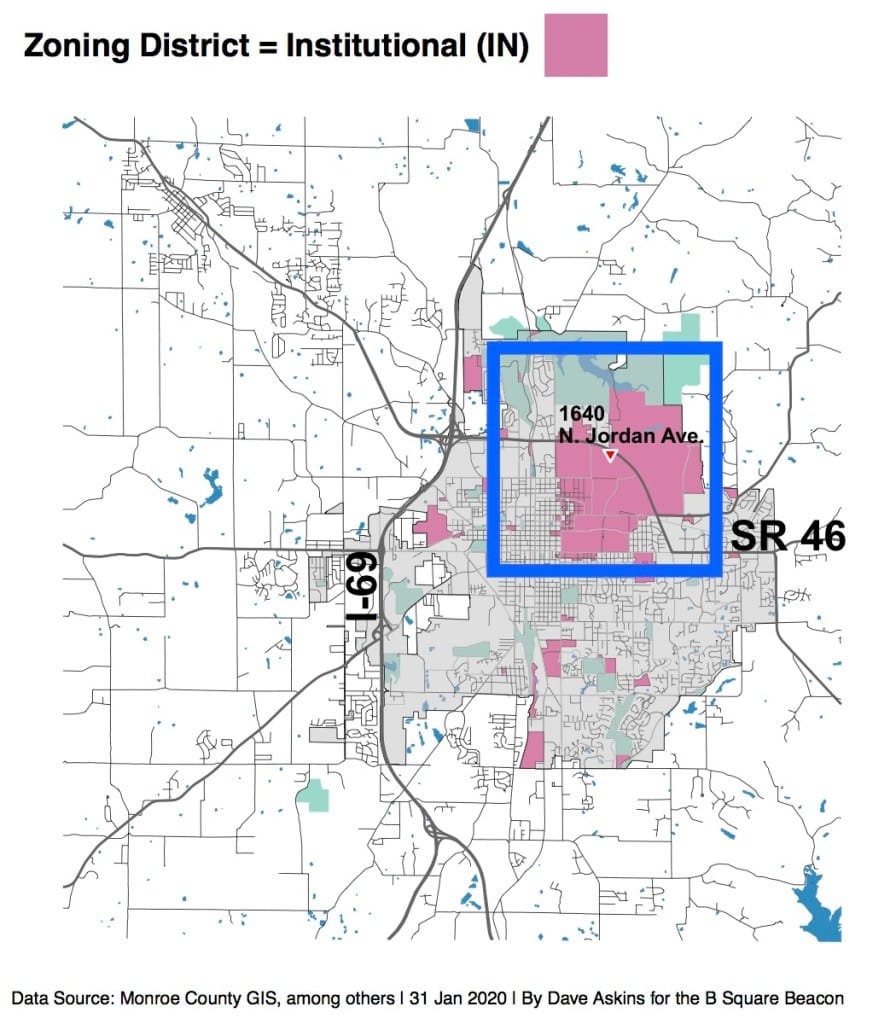Indiana’s highest court says Bloomington did not violate Constitution with Greek house definition



Bloomington and other college towns in Indiana will be able to rely on institutions of higher education to help define what a sorority or fraternity house is.
A unanimous decision issued by Indiana’s Supreme Court on Tuesday reversed a court of appeals ruling that said Bloomington had unconstitutionally delegated its authority to Indiana University to define sororities and fraternities.
The case stemmed from a decision by Bloomington’s board of zoning appeals in the summer of 2018. The key question of law: Can a city rely on a university to decide what counts as a fraternity for purposes of the city’s zoning code? The Supreme Court said yes.
Tuesday’s ruling included decisions on two questions. The first was whether the court would accept transfer from the court of appeals. That answer was also yes.
Once the Supreme Court decided it would accept the case, it had to decide if the court of appeals was right in saying Bloomington’s zoning code violated the US Constitution, because it had delegated to Indiana University the city’s authority to determine zoning compliance.
The authority in question was the ability to determine if an organization is or is not a fraternity or sorority. Tuesday’s ruling overturned the decision by the court of appeals
The subject of controversy was the wording in Bloomington’s ordinance that defines a fraternity or sorority as one where “all students living in the building are enrolled at the [IU] Bloomington campus; and [IU] has sanctioned or recognized the students living in the building as being members of a fraternity or sorority through whatever procedures [IU] uses to render such a sanction or recognition.”
Tuesday’s ruling states: “The Ordinance did not obligate IU to act or directly empower it to write zoning law. Rather, it helped define fraternities and sororities by ensuring their relationship with IU was the deciding factor, not the process that created the relationship. That was a permissible legislative judgment, not an impermissible delegation.”
The case originated out of a situation in 2016, when UJ-Eighty Corporation was leasing its property at 1640 North Jordan Avenue to Gamma-Kappa Chapter of Tau Kappa Epsilon, Inc. The case stemmed from Indiana University’s revocation of the fraternity’s sanction in early February of 2018. Not all of the residents of the fraternity house left the premises, so the city of Bloomington issued a notice of violation.
Why did Bloomington analyze that situation as a violation of the zoning code? The area was zoned as an institutional district (IN), which includes a fraternity or sorority house as a permitted use. But under the city’s definition of a fraternity or sorority house at the time, the requirements for residents of a fraternity house included:
…Indiana University has sanctioned or recognized the students living in the building as being members of a fraternity or sorority through whatever procedures Indiana University uses to render such a sanction or recognition.
After IU revoked TKE’s sanction, the requirement in the definition was no longer met. When UJ-Eighty did not get satisfaction from the city’s board of zoning appeals, the case went to the Monroe Circuit court, which found in the UJ-Eighty’s favor. The court of appeals affirmed that ruling.
Owing in part to the ongoing litigation, in December 2019, the definition of a fraternity or sorority house was amended by Bloomington’s city council. That was a part of a raft of amendments made by the council to the city’s unified development ordinance.
The 2019 UDO amendment gets a mention in a footnote of Tuesday’s ruling: “This amendment addressed UJ-Eighty’s concerns by removing any reference to IU’s sanction or recognition. However, the amendment was not retroactive, so while it provided prospective relief, it did not nullify UJ-Eighty’s violation.”
The footnote continues, “Absent judicial relief, the BZA’s decision stands, and Bloomington can fine or otherwise penalize UJ-Eighty.”
[Added at 11:46 a.m. on Feb. 24, 2021. According to Bloomington city attorney Mike Rouker, Bloomington will not be pursuing a fine. Rouker wrote in an email, “We will not be issuing any fines to UJ-Eighty. The illegal land use at UJ-Eighty’s property ceased some time ago, and the City’s goal from the beginning has simply been to compel compliance with the land use regulations in our zoning ordinance. That goal has been achieved, and therefore there is no need for fines, absent some future violation at the property.”]
Oral arguments in the case were given in front of the Supreme Court in September of 2020. Due to the COVID-19 pandemic, they were presented via Zoom video conference. Bloomington was represented on that occasion by assistant city attorney Larry Allen.




Comments ()